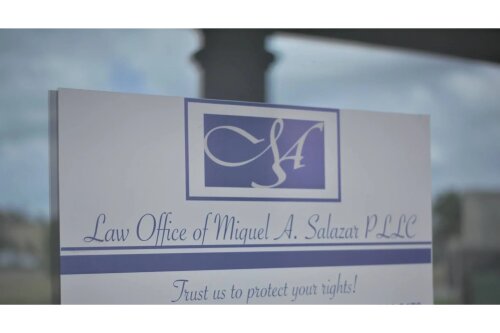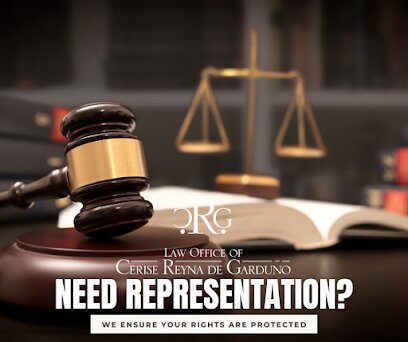Best Motor Vehicle Defect Lawyers in Indiana
Share your needs with us, get contacted by law firms.
Free. Takes 2 min.
Or refine your search by selecting a city:
List of the best lawyers in Indiana, United States
About Motor Vehicle Defect Law in Indiana, United States
Motor vehicle defect law in Indiana focuses on protecting consumers and motorists from harm caused by vehicles that are unsafe due to design, manufacturing, or warning deficiencies. These defects might affect individual car components or entire vehicle systems, leading to risks such as accidents or injuries. Indiana’s legal framework allows those impacted by motor vehicle defects to seek compensation for damages under specific statutes, warranty protections, and product liability principles. Whether a defect involves the brakes, airbags, electrical system, or other critical parts, understanding your legal rights is crucial if you own or have been injured by a faulty automobile in Indiana.
Why You May Need a Lawyer
Motor vehicle defect cases often involve technical investigations, evidence gathering, and negotiations with manufacturers or their insurers. You may need a lawyer if:
- You have suffered injuries or property damage believed to be caused by a vehicle defect.
- Your car has recurring problems that the manufacturer or dealer has not resolved despite multiple repair attempts.
- You believe your vehicle is part of a recall but have not been properly notified or compensated.
- You face resistance or denial of your claim by a manufacturer or dealership regarding repair or replacement.
- You want to ensure your legal rights are protected during settlement negotiations or potential litigation.
A qualified lawyer can help navigate complex Indiana laws, determine if you have a valid claim, gather necessary evidence, and represent your interests in court or settlement discussions.
Local Laws Overview
Indiana has specific local laws and consumer protection acts that cover motor vehicle defects:
- The Indiana Motor Vehicle Protection Act (commonly known as the Lemon Law) protects buyers of new vehicles that repeatedly fail to meet standards of quality after purchase. If significant defects cannot be repaired after multiple attempts, consumers may be entitled to a replacement or refund.
- Indiana’s version of the Uniform Commercial Code (UCC) covers warranties for both new and used vehicles, addressing breaches of express or implied warranties regarding a vehicle’s fitness, safety, or merchantability.
- Product liability laws in Indiana allow injured parties to sue manufacturers, distributors, or sellers of defective vehicles that cause injury, death, or property damage. These laws require showing that a defect existed and directly caused harm.
- Indiana’s statutes of limitation generally require that claims regarding personal injury or property damage from vehicle defects be filed within two years of the incident.
- Manufacturers and dealers must comply with state and federal recall requirements, promptly notifying consumers when defects are discovered.
Understanding these laws can help you better assess your situation and determine the right course of action.
Frequently Asked Questions
What qualifies as a motor vehicle defect in Indiana?
A motor vehicle defect is any condition arising from design, manufacturing, or labeling errors that renders a car or its components unsafe or unfit for their intended purpose.
What is Indiana’s Lemon Law?
Indiana’s Lemon Law protects new car buyers by requiring manufacturers to repair recurring substantial defects within a set period or mileage. If defects are not fixed after reasonable repair attempts, buyers may request a replacement vehicle or a full refund.
Can used cars be covered under Indiana’s Lemon Law?
Generally, Indiana’s Lemon Law applies to new vehicles. However, warranties and certain consumer protection rules may address used vehicle defects, especially if a warranty was provided or fraud is involved.
How do I know if my vehicle is part of a recall?
Manufacturers are required to notify vehicle owners of official recalls. You can also contact the dealership where you bought the car or consult federal vehicle safety agencies to check for active recalls involving your model.
What should I do if I suspect my car has a defect?
Document all issues, repairs, and interactions with the dealer or manufacturer. Notify your dealer in writing and request necessary repairs. If issues persist, consult a lawyer to determine your options under Indiana law.
Who can be held liable for a vehicle defect in Indiana?
Manufacturers, distributors, retailers, and sometimes repair shops can be held liable for injuries or losses caused by defective vehicles or parts, depending on the circumstances.
How long do I have to file a claim for a motor vehicle defect in Indiana?
Most personal injury or property damage claims related to vehicle defects must be filed within two years from the date of injury or discovery of the defect.
What damages can I recover in a motor vehicle defect lawsuit?
Eligible damages may include medical expenses, lost wages, pain and suffering, property damage, as well as repair or replacement costs of the defective vehicle.
What evidence is important in a defect case?
Keep repair bills, purchase contracts, warranty documents, photographs or videos of the defect, correspondence with dealers or manufacturers, and any recall notifications.
Can I file a lawsuit if a manufacturer refuses to honor a warranty?
Yes, if a manufacturer or dealer fails to honor a valid written or implied warranty, especially after reasonable repair attempts, you may seek relief through state consumer protection laws or the courts.
Additional Resources
- Indiana Attorney General’s Office - Consumer Protection Division: Provides information on Lemon Law complaints and filing consumer grievances.
- Indiana Department of Insurance: Offers guidance on auto insurance claims related to vehicle defects.
- National Highway Traffic Safety Administration (NHTSA): Database for vehicle recalls, safety issues, and consumer complaints.
- Legal Aid Organizations in Indiana: Offer free or low-cost legal assistance for eligible residents facing auto defect or warranty issues.
- Indiana Bureau of Motor Vehicles: Resource for vehicle registration and title issues tied to defective vehicles.
Next Steps
If you believe you have a motor vehicle defect issue in Indiana, begin by gathering all relevant documentation, including purchase agreements, repair records, warranty details, and correspondence with the dealer or manufacturer. Consider contacting the dealer or manufacturer directly to seek a resolution. If your concerns are not adequately addressed, consult with a lawyer experienced in motor vehicle defect law to discuss your situation and determine the best legal course of action. Many attorneys offer free consultations to assess the merits of your case. You can also reach out to the Indiana Attorney General’s Office or local consumer protection agencies for further guidance. Taking prompt action can help protect your rights and improve your chances of a favorable outcome.
Lawzana helps you find the best lawyers and law firms in Indiana through a curated and pre-screened list of qualified legal professionals. Our platform offers rankings and detailed profiles of attorneys and law firms, allowing you to compare based on practice areas, including Motor Vehicle Defect, experience, and client feedback.
Each profile includes a description of the firm's areas of practice, client reviews, team members and partners, year of establishment, spoken languages, office locations, contact information, social media presence, and any published articles or resources. Most firms on our platform speak English and are experienced in both local and international legal matters.
Get a quote from top-rated law firms in Indiana, United States — quickly, securely, and without unnecessary hassle.
Disclaimer:
The information provided on this page is for general informational purposes only and does not constitute legal advice. While we strive to ensure the accuracy and relevance of the content, legal information may change over time, and interpretations of the law can vary. You should always consult with a qualified legal professional for advice specific to your situation.
We disclaim all liability for actions taken or not taken based on the content of this page. If you believe any information is incorrect or outdated, please contact us, and we will review and update it where appropriate.
Browse motor vehicle defect law firms by city in Indiana
Refine your search by selecting a city.











